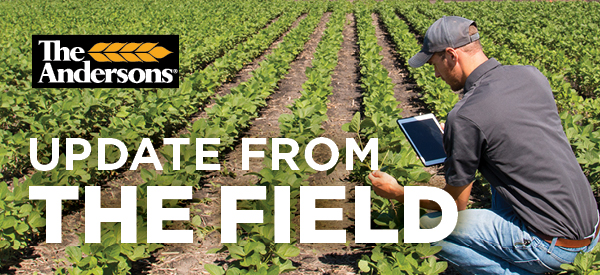Update from the Field: Gypsum, White Gold
Posted by Dave Dyson, Agronomist on October 15, 2020

One of the main drivers of nutrient availability is soil pH. As demonstrated in Figure 1, nutrients are most available when the soil pH is between 6-7. Soil pH is defined as the inverse logarithm of the hydrogen ion concentration. In other words, the pH test is measuring the amount of hydrogen in the soil: the higher the hydrogen level in your soil, the lower the pH. There are two main nutrients, magnesium and calcium, that affect the amount of hydrogen ions levels.
Figure 1: The widest spectrum of nutrient availability is between the pH range of 6-7.
Soil sampling is an excellent way to measure the pH and the amount of magnesium and calcium in the soil. When looking at results of a soil test, the base saturation will provide a percentage of magnesium and calcium on the soil colloid. The ideal base saturation of magnesium is 15-20%, and calcium’s is 60-68%. If the magnesium levels elevate much above 20% base saturation and the calcium goes below 60% base saturation, although the pH level may be within the 6 -7 range, the crop may be starving for calcium.
Calcium is required for plant growth. It helps form cell walls to strengthen plants and stimulate root and leaf development. Calcium aids in stress reduction by improving disease resistance and the uptake of essential nutrients. Calcium improves soil structure, aeration, and drainage, resulting in increased water infiltration and reduced soil surface crusting, and in turn, improved seedling emergence. If the magnesium levels get too high, potassium can be tied up and unavailable to the crop.
How can calcium be added to the cropping system, removing excess magnesium from the soil, while at the same time keeping the pH unchanged? We recommend NutraSoft® DG, Figure 2, which is a high-quality gypsum mined in Tawas City, Michigan, from natural deposits. It is ground to a flour-like powder, then granulated into pellets, using our patented Dispersing Granule (DG) Technology. DG technology creates a low dust, spherical, ultra-dry particle that rapidly disperses upon contact with water, creating thousands of microparticles, resulting in improved coverage and solubility. These pellets can be mixed with granular fertilizer and no specialized equipment is needed to apply to the soil. When the pellets disperse, they release 21% calcium and 16% sulfur, in the sulfate form, into the soil. Sulfates will increase crop yields and quality by increasing protein and oil percentage in the seed. The sulfate portion in NutraSoft DG will remove excessive amounts of magnesium, while the calcium portion will replace the magnesium on the soil colloid. The OMRI approved version of The Andersons pelletized gypsum is NutraSoft OP – be sure to ask for this brand if you are a certified organic operation.
Figure 2: NutraSoft DG is The Andersons’ pelletized gypsum product that can be easily spread with fertilizer.
In conclusion, don’t guess, soil test. Pulling a soil test should be the first decision when putting together a fertility program this fall. Excessive magnesium can cause nutrient tie-up and cause restricted root growth. Applying NutraSoft DG to the soil will reduce the magnesium load, increase the calcium level, and provide needed sulfates to the cropping system, all while not changing the pH of the soil. Ask your trusted Ag Advisor from The Andersons for NutraSoft DG rates and recommendation.
FOR MORE INFORMATION:
Please complete the form, and we’ll get you in touch with your Territory Manager from The Andersons.

Dave Dyson is a regional agronomist for The Andersons’ Farm Centers which are located throughout Ohio, Michigan, and Indiana. He is an Indiana native and grew up on a dairy farm in Miami County. A graduate of Purdue University with a degree in Crop & Soil Science, Dave has a deep knowledge of various agronomic topics and is committed to helping growers improve their crops. If you have any questions, Dave can be reached at david_dyson@andersonsinc.com.
© 2020 The Andersons, Inc. All Rights Reserved. NutraSoft is a registered trademark of The Andersons, Inc.




